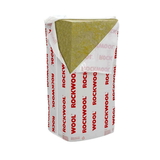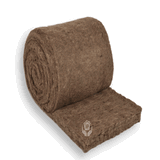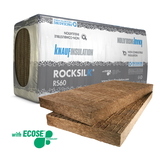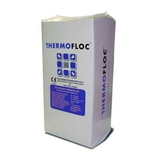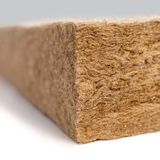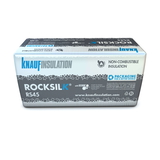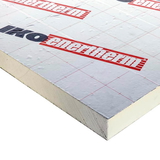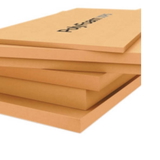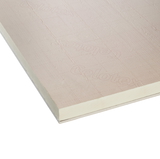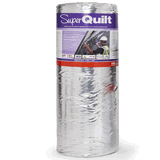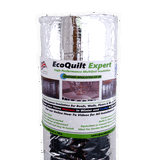- Blogs
- Why Is Basement Insulation Necessary?
Why Is Basement Insulation Necessary?

Basements are an important area of your home. A properly insulated and finished basement can be converted into usable space, bedroom, home office or simply used for storage. Basements are located underground and have concrete walls making them much colder compared to floors above. The minute you step into any inadequately insulated basement, you immediately notice the temperature difference, feel the draftiness and the cold walls.
Most homes in the UK, have basements that have little to no insulation. Uninsulated basements can be a reason for higher energy bills. Heated air from the house floors above can find its way into the basement making your heating system work harder. This in turn leads to additional heating and cooling expenses, more energy and therefore, more money.
In this article, we will explore why basement insulation is necessary. We will delve into the benefits it offers and explore the various insulation options available to ensure that your basement is comfortable and efficient as possible. So, let's get started and discover why it is absolutely essential to insulate your basement.
Benefits of Basement Insulation 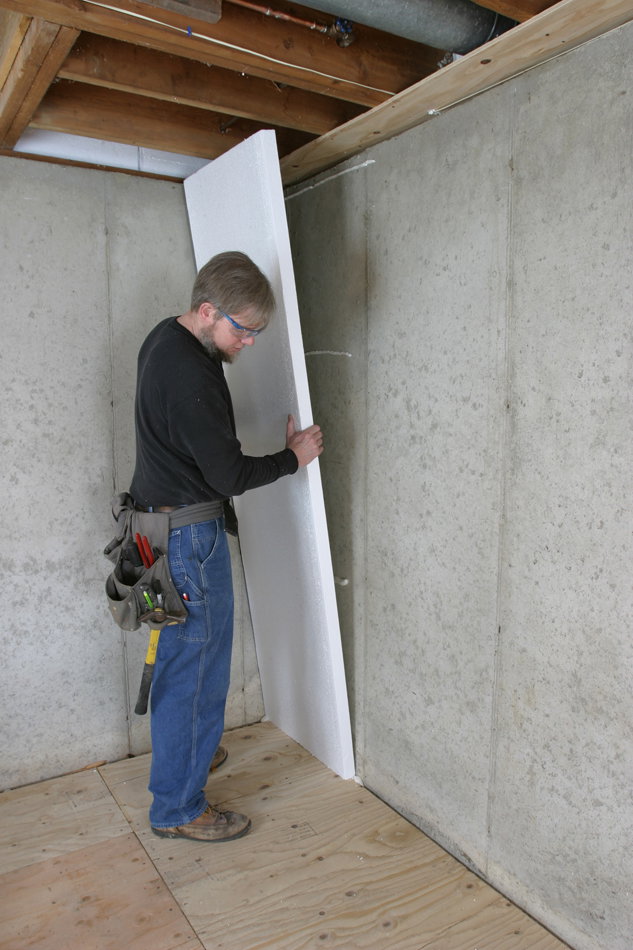
So why should you insulate your basement? Well, insulating a basement can bring in the following benefits:
1. Keep the Harsh Winter Outside:
The climate in the UK is unpredictable, more often cold, and damp, accompanied by harsh conditions. Basements are particularly susceptible to moisture intrusion, making them prone to dampness, mould, and structural damage. By insulating your basement, you create a protective barrier against external elements, keeping your basement dry, warm, and shielded from the impact of adverse weather conditions.
2. Energy Efficiency:
When you add insulation to your basement it improves the energy efficiency of your home. Basements often are a significant source of heat loss, resulting in increased energy consumption and higher utility bills. Proper insulation helps to minimise heat transfer, reducing energy wastage and creating a more comfortable living environment. By retaining heat during winter and keeping the basement cool during summer, insulation helps maintain optimal temperature levels throughout the year.
3. Moisture Control:
Moisture-related issues, such as dampness and mould growth, can significantly impact both your property's structural integrity and the health of its occupants. Basement insulation serves as a vital defence against moisture infiltration.
When you insulate the ceiling and walls of your basement, you create a barrier that prevents water vapour from seeping into the basement, reducing the risk of condensation and mould growth. Additionally, proper insulation helps control humidity levels, maintaining a healthier and more comfortable living space.
4. Enhanced Comfort:
Basements are often used as additional living spaces, whether as recreational areas, home offices, or guest rooms. Proper insulation not only helps regulate temperature but also creates a more comfortable and inviting atmosphere. Air sealed and insulated basements are quieter, as most insulation materials absorb sound, reducing noise transfer from other areas of the house. This added comfort ensures that you can fully enjoy and utilise your basement space, regardless of the weather outside.
5. Meeting Building Regulations
Insulating your basement is not only a matter of comfort and energy efficiency; it may also be a regulatory requirement to avoid costly fines for violating local building regulations. Consult with local building inspectors to determine if this applies to your area.
Types of Basement Insulation Types
Like when insulating a loft or wall, choosing the right insulation for your basement also depends on several factors like the thermal performance of the insulation material, cost-effectiveness, and suitability for your specific needs. Here are some common insulation options for basements:
Fibreglass Insulation:
Fibreglass insulation is a popular and cost-effective choice for basement insulation. It is available in insulation rolls or batts and is relatively easy to install. Fibreglass insulation has good thermal performance and helps control moisture. However, it can be less effective in sealing air gaps compared to other materials.
Mineral Wool Insulation:
Mineral wool, also known as rock wool or stone wool, is a versatile insulation material suitable for basements. Available as insulation batts and boards, these are also relatively easy to install and offer good thermal and acoustic performance, as well as excellent fire resistance. Mineral wool batt insulation is ideally used to insulate basement walls.
Rigid Foam Insulation:
Rigid foam boards, such as PIR Insulation, extruded polystyrene (XPS) or expanded polystyrene (EPS), are commonly used for basement insulation. These boards offer high insulating value and durability. Rigid foam boards can be used to insulate walls, floors and for ceiling insulation in a basement.
Foil Insulation:
Multifoil insulation can be used to insulate basement walls. It is typically installed on the interior side of the walls and is most effective when combined with other insulation materials like rigid foam boards or mineral wool. Proper installation with overlap and sealed seams is essential for optimal performance.
When selecting insulation for your basement, it's essential to consider factors like R-value, K-value, moisture resistance, fire resistance, and any specific building regulation requirements. Additionally, we always recommend consulting with insulation professionals or contractors who can assess your basement's unique needs and recommend the most suitable insulation material and installation method.
Where to insulate in a basement?
Basement insulation includes insulating wall surfaces, ceilings and floors: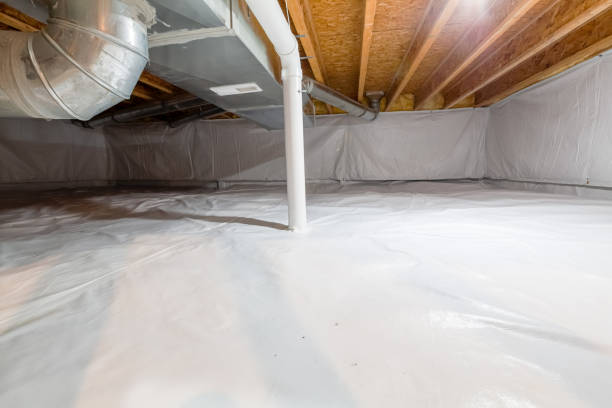
Basement Walls:
The foundation walls surrounding the basement can get very cold. Therefore insulating basement walls before the rest of the basement is a no-brainer.
Basement wall insulation helps prevent heat loss, control moisture, and improve energy efficiency. The insulation can be installed on the interior or exterior side of the walls, depending on factors like accessibility and moisture considerations. Basement walls can be insulated using fibreglass rolls, insulation batts, and foam insulation boards.
-
Inside Wall Insulation: This involves installing insulation material directly on the interior surface of the basement walls. It is typically done when the exterior walls cannot be accessed or insulated. Insulation boards, such as rigid foam or mineral wool, are commonly for interior wall insulation
-
Outside Basement Wall Insulation: Basement walls may be possible to insulate from the outside more often, during the construction phase. This method involves applying insulation to the exterior surface of the basement walls before backfilling or adding a protective layer, such as a waterproofing membrane. It provides a continuous thermal barrier and protects the basement from outside elements.
Basement Floors:
Basement floor insulation helps retain warmth and improve energy efficiency. It can be done by installing insulation material underneath the basement floor or as part of a raised flooring system. Rigid foam boards can be ideal for insulating basement floors.
Basement Ceilings:
Basement ceiling insulation in the UK is typically achieved using materials such as mineral wool insulation batts or insulated foam boards. Insulation is typically installed between the ceiling joists.
Ceiling insulation options provide thermal resistance and help improve energy efficiency. It is essential to ensure proper installation, following UK building regulations and guidelines, to maximise the insulation's effectiveness in controlling heat transfer and enhancing thermal comfort in both the basement and upper living spaces.
Insulate Basement Pipes:
Insulating basement pipes are susceptible to freezing as uninsulated basements can get much colder. Insulating these pipes can help prevent heat loss and protect against freezing. Nitrile rubber insulation or phenolic foam lagging is ideal for these applications.
Rim Joists:
Rim joists are the areas where the basement walls meet the above-ground walls. Insulating rim joists help reduce heat loss and air leakage. Insulation material can be applied to seal gaps and improve energy efficiency.
Cost of basement insulation in the UK 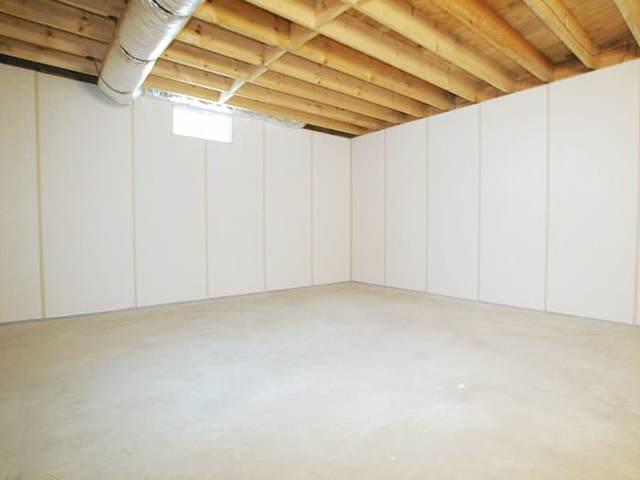
The cost of basement insulation in the UK can vary depending on several factors, including the size of the basement, the type of insulation material used, the complexity of the installation, and the region. It's important to note that the following estimates are rough averages and can vary significantly:
-
Fibreglass Insulation: The cost of fibreglass insulation in the UK is generally in the range of £20 to £40 per square meter for materials and installation.
-
Mineral Wool Insulation: Mineral wool insulation typically falls within a similar price range as fibreglass insulation, ranging from £20 to £40 per square meter.
- Rigid Foam Insulation: Rigid foam insulation tends to be slightly more expensive than fibreglass or mineral wool. The cost can range from £25 to £50 per square meter, including materials and installation.
It is advised to do your research and obtain quotes from insulation suppliers and contractors in your area to get a more accurate estimate for your specific basement insulation project.
Building Regulation for Insulating a Basement:
Building regulations for basement insulation in the UK include requirements for thermal performance (U-values) and measures to control moisture. Specific regulations may vary based on local authorities and guidelines. It is important to consult with local building control or a qualified professional for the specific requirements applicable to your area to ensure you pass an inspection
Frequently Asked Questions:
What insulation is best for the basement?
The best insulation for a basement depends on various factors such as budget, specific requirements, and local building codes. Commonly used options include fibreglass, mineral wool and rigid foam insulation. Each has its advantages, so it's best to consult with insulation professionals to determine the most suitable choice for your basement.
Is it worth insulating your basement?
Yes, insulating your basement is worth it. It improves energy efficiency, prevents moisture issues, enhances comfort, and protects your home from the elements.
Does insulating the basement ceiling help?
Insulating the basement ceiling improves energy efficiency, thermal comfort, and noise control between floors.
Should basement wall insulation be inside or outside?
The decision to insulate basement walls from the inside or outside depends on factors like cost, moisture concerns, and desired insulation performance. Interior basement insulation is easier and cheaper but may not address exterior moisture issues. Insulating from the outside provides better insulation and moisture control but is more expensive and complex to install.
Can you insulate your basement from the outside?
Yes, it is possible to insulate a basement from the outside using exterior insulation. This method improves energy efficiency, controls moisture, and enhances thermal performance. Professional expertise is recommended for proper installation.
What is the right time to insulate the basement?
Ideally, basement insulation is undertaken during the construction phase or when you plan to remodel this space.
If you are building a new home or constructing a basement as part of a refurbishment project, it is typically recommended to insulate the basement during the initial construction phase. This allows for easier access to new walls, floors, and ceilings, providing a seamless installation of insulation materials.
If you are renovating an existing basement, it is often practical to insulate during the renovation process. This allows for improvements in energy efficiency, moisture control, and comfort while other upgrades or modifications are being made.
Conclusion:
In conclusion, basement insulation is essential for UK homeowners due to the cold, damp climate. It improves energy efficiency, protects against moisture issues, enhances comfort, and preserves the structural integrity of the basement. By insulating the basement, you create a dry, warm, and energy-efficient living space while safeguarding your home and well-being. Explore the various insulation options available in the UK to make an informed decision for your basement insulation needs.
For top-rated insulation rolls, foil insulation, slabs, PIR, EPS and XPS insulation boards visit Buy Insulation Online. Along with traditional insulating materials we also stock eco-insulating products like sheep wool, wood fibre and hemp insulation that offers a more sustainable alternative.

Samuel Hitch
Managing Director
Buy Insulation Online.
Leave A Reply
Your feedback is greatly appreciated, please comment on our content below. Your email address will not be published. Required fields are marked *



